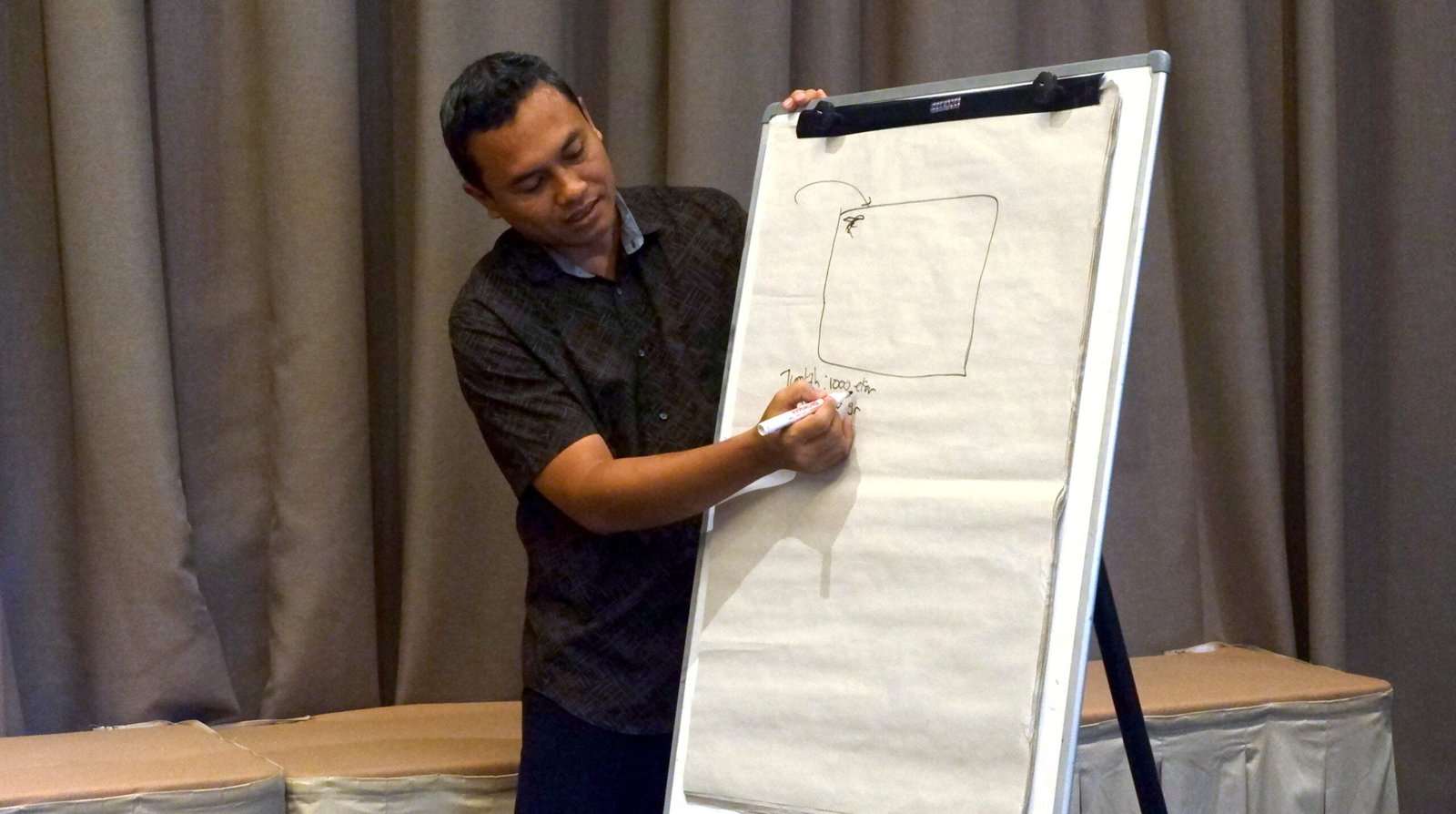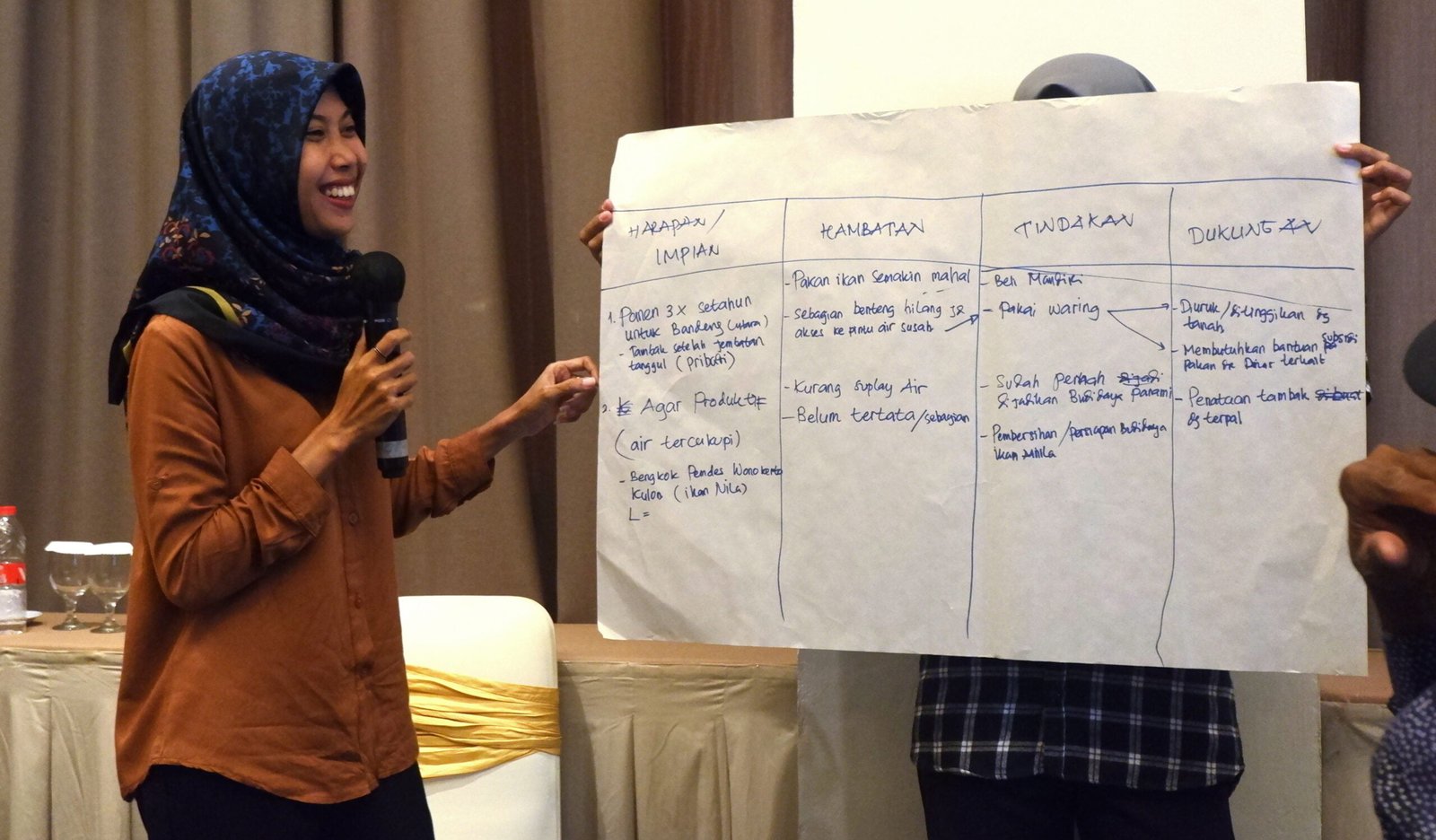Pekalongan- Climate change is getting worse impacting the fishermen and fish farmers in Wonokerto District, Pekalongan Regency. Sea level rise is increasing at the peak of the high tide season and the recent dry season is getting longer. Many fish ponds are affected: submerged ponds, high salinity water, and stressed fish. To anticipate further impacts, groups of fish farmers and fishermen from five villages (Pecakaran, Api-Api, Tratebang, Semut, and Wonokerto Kulon) took part in training on sustainable aquaculture as an adaptation to climate change.
The training is conducted by BINTARI with financial support from the Japan Fund for Global Environment. Training is led by Eddy Nurcahyono, M.P. from Balai Besar Perikanan Budidaya Air Payau, Kementerian Kelautan dan Perikanan for two days, starting from Tuesday (21/11/2023). A total of 21 participants from fish farmers, fishermen, Village-owned Companies, Women groups, and technical agencies from the Pekalongan Municipal Government attended the training. Besides participating in the training, representatives of the Fishery and Marine Agency and the Housing, Settlement, and Environment Agency also disseminate their policies, programs, and plans.

When opening the training, Burhan Arifin from the Fishery and Marine Agency of Pekalongan Regency encourages fish farmers to formalize their groups by forming legal entities. It will strengthen the transparency and accountability of aid and assistance, especially those from governments.
“According to regulation, governments will only support fish farmer groups that have legal entity. We have granted equipment and certified fish seeds.”, his message to training participants. Climate change impacts; especially sea level rise and extreme dry season this year affected farmers and reduced productivity. He admitted that irrigation and production roads for aquaculture have been damaged due to the construction of a sea wall and need to be improved to support fish farmer needs.

At the end of the training, six fish farmer groups propose action plans to adopt the training results. The training recommends a silvo-fishery system by integrating mangroves within and around the ponds, strengthening pond embankments, combining and diversifying the commodities, and reducing the use of the chemical substance. Each group develop their action plan differently referring to their need and analyses. BINTARI will support the investment to adopt the training results partly. Additionally, farmers can request water quality testing at the BINTARI Pekalongan Office to understand some water parameters and adjust fish pond treatment.
“BINTARI support will only contribute 20-30% to your successes. The rest depends on your tenacity, hard work, and smart decision to maintain your aquaculture”, said project coordinator, M. Nurhadi, in his closing remark. (MN)

